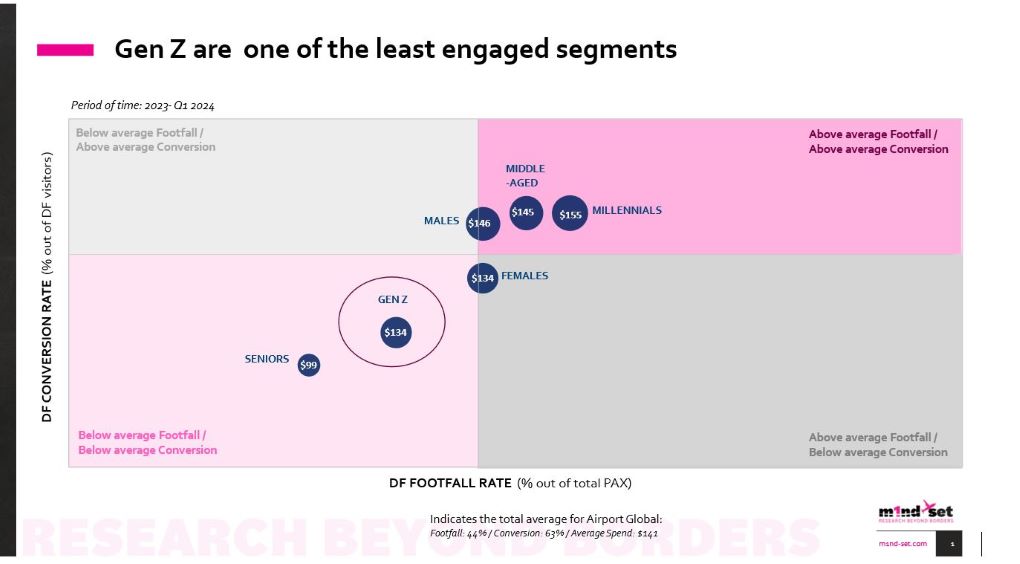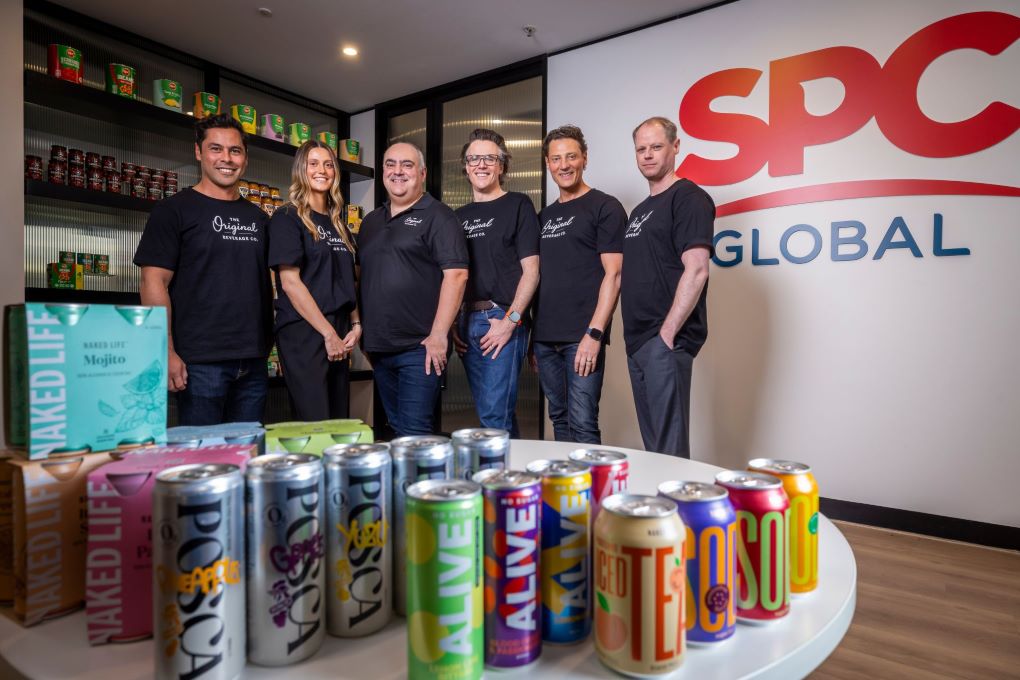Nestlé International Travel Retail (NITR) has put more focus on the strong connection between Gen Z consumers and the food category in travel retail.
Referring to insights from a study by market research specialist m1nd-set, the world’s leading food company noted that the “winning combination” of these trends will help drive category growth and incremental industry revenue.
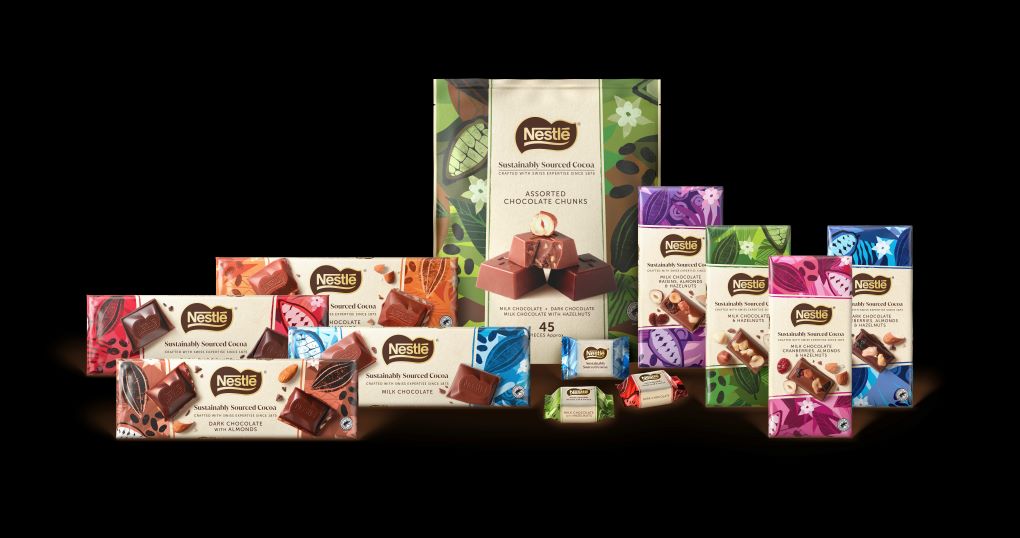
The concept is in line with Nestlé ITR’s ambition to build food into the most-purchased category in the channel having realised its potential beyond confectionery.
The strategy, launched in 2021, was designed to deliver category growth with food seen as the fastest-growing segment and already the most-purchased category in Europe and the Americas.
Nestlé ITR Marketing Manager Aura Sanchez said: “When we launched our #Food 1 strategy we were convinced we could turn what was a declining market in global travel retail into one of growth. Our plans were based on figures which showed strong +77% growth on the domestic market versus only +7% in global travel.
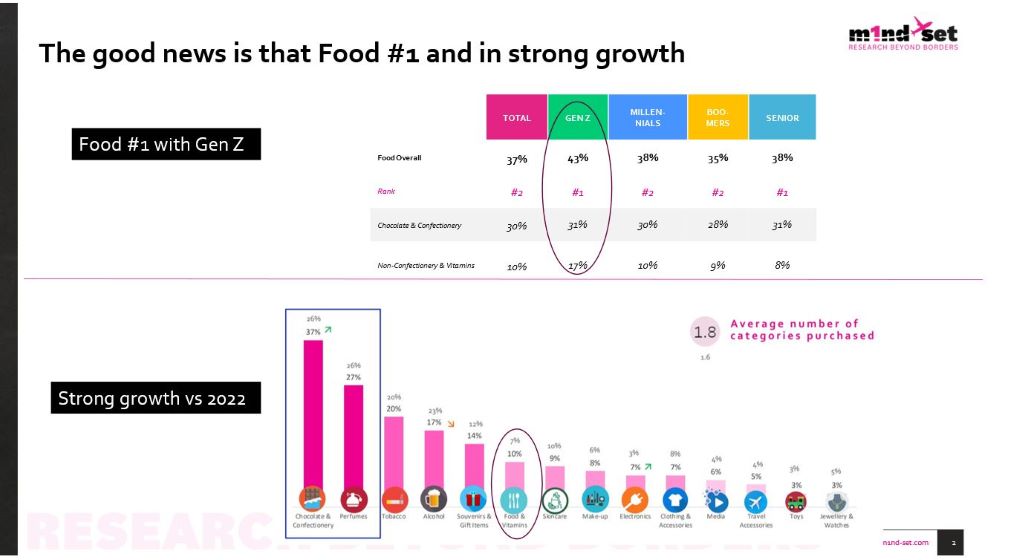
“We saw an opportunity to rejuvenate the category, to accelerate post-COVID industry recovery, and we took it. And, to date, the good news is that we made the correct bets in terms of food and its potential.”
Data from m1nd-set reveals strong category growth in 2023 from +31% to +37%, with food also expected to be the fastest-growing category by 2027.
According to the research, Gen Z is set to surpass Millennials as the largest airline passenger group by 2028, accounting for approximately 1.2 billion passengers flying in 2028.
This group already makes up 40% of global consumers and currently has a global spending power of US$200 billion.
Sanchez continued: “The figures speak for themselves and are even more defined when you consider the Asia Pacific region. There are around 280 million Gen Zs in China, representing the second-largest Gen Z population in the world, surpassed only by India, with almost 400 million.
“According to m1nd-set data from 2023, Gen Zs are one of the least engaged in terms of visiting and purchasing in GTR. The good news is that the food category is the key category to unlock the potential revenue of this segment.
“Already we see that food is the most-popular category with Gen Z and also the fastest growing in terms of increased purchase.”
Sanchez correlates this data with purchasing trends among Gen Zs in the overall food category, where 43% of this consumer group are actively purchasing food. Chocolates are the most-purchased items, rising sharply from +26% to +37%, and non-confectionery increasing from +3% to +10% between 2022 and 2023.

She said: “Food is the key category to unlocking the potential of Gen Zs as they are the highest-purchasing segment already. The reasons are clear. Food products in travel retail offer a low or accessible price point. It’s a fun category, with opportunities for engagement and digitisation.
“Let’s consider what Gen Z consumers are looking for in travel retail. They are known for their focus on sustainability and no category in travel retail delivers that better than food. Gen Zs are impulse-driven shoppers and confectionery & food is the impulse-led category.
“Gen Zs are looking for novelties – another box ticked – authenticity, sense of place and exclusive products. Food is the perfect category, and NITR has the products, to meet all these demands.”
KitKat is among the key brands being highlighted as part of NITR’s strategy to deliver category growth in travel retail, as well as its Sustainably Sourced Cocoa line, introduced at the TFWA World Exhibition in Cannes last year.
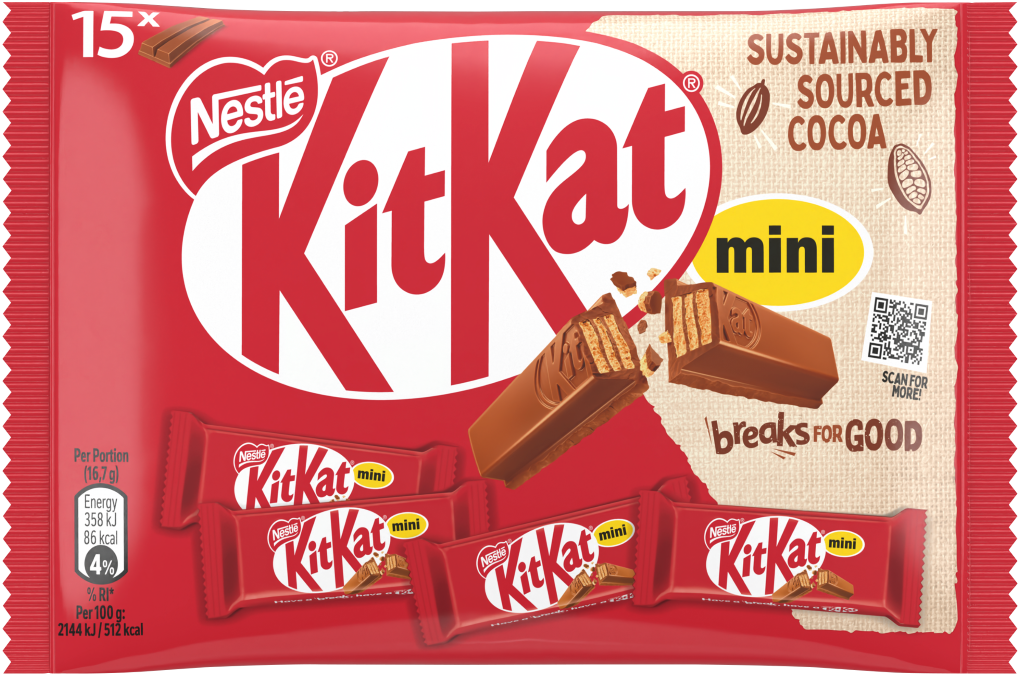
Sanchez said: “We launched the first KitKat made with cocoa mass from beans grown by farmer families engaged in Nestlé’s ground-breaking Income Accelerator Programme into European travel retail earlier this year. This ‘Breaks for Good’ KitKat not only tastes good but also raises awareness about the sustainability of the cocoa used in the iconic bars.”
As reported, the KitKat wrapper features a bold Sustainably Sourced Cocoa stamp and QR code, linking consumers to further details on the programme and its impact on the lives of cocoa-farming communities.
Following the launch of this KitKat expression was the latest travel retail-exclusive Sustainably Sourced Cocoa range, billed as Nestlé ITR’s ‘biggest news of the year’.
Supported by its ‘does good, tastes great’ tagline, the collection strengthens the company’s commitment to a sustainable future and to appeal to the tastes of Gen Z consumers.
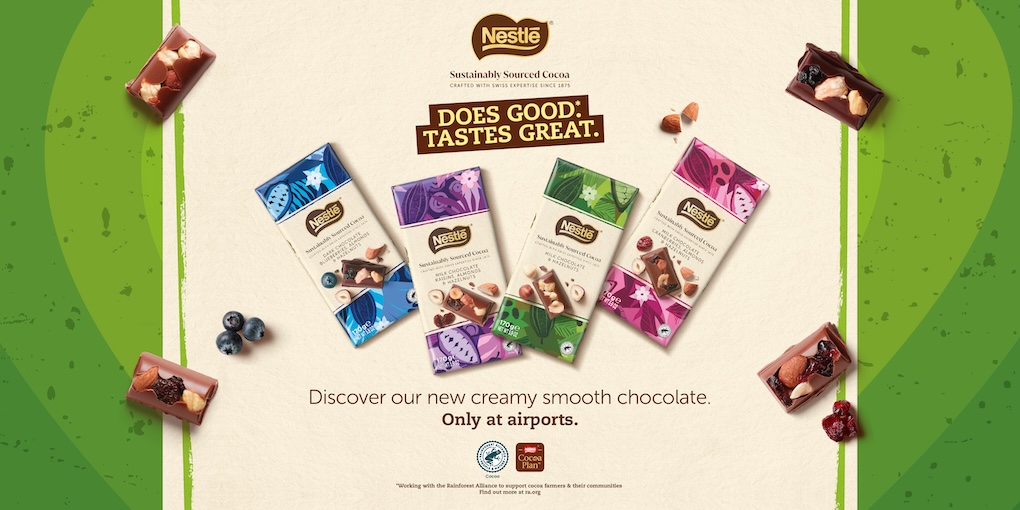
Sanchez added: “We are confident that Gen Z consumers will be quick to relate to these products. They match their shopping preferences and trends and, at the same time, offer a huge opportunity for NITR to cement even closer collaborations with its travel retailer partners. The focus, of course, is on food and unlocking the potential of this audience.”
Among the key sustainability programmes by Nestlé is the Income Accelerator Programme, which builds on the company’s longstanding efforts to tackle child labour risks in cocoa production and promote better agricultural practices.
The programme incentivises cocoa-farming families who enrol their children in school, implement good agricultural practices, engage in agroforestry activities and diversify their incomes. The scheme rewards cocoa-farming families not just for the quantity and quality of their cocoa beans, but also for practices that benefit the environment and local community.
Payments are equally divided between the male and female heads of family, empowering women to represent positive change by saving, investing and sharing responsibilities.
Cocoa-farming communities are affected by critical challenges, from rural poverty and increasing climate risks to a lack of access to financial services and basic infrastructure, such as water, healthcare and education. These factors can result in social issues, including the prevalence of child labour risk on family farms.
So far, over 10,000 families in Côte d’Ivoire have benefitted from this programme, which is expanding to Ghana this year to reach some 30,000 families.
By 2030, Nestlé intends to reach an estimated 160,000 cocoa-farming families in its global cocoa supply chain to create impact at scale. ✈




